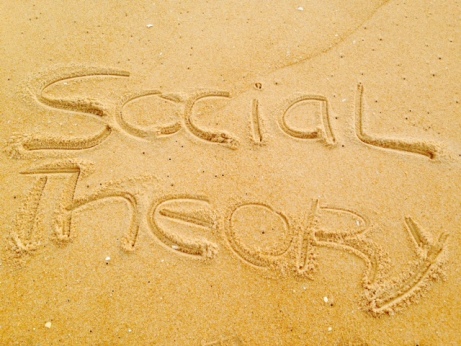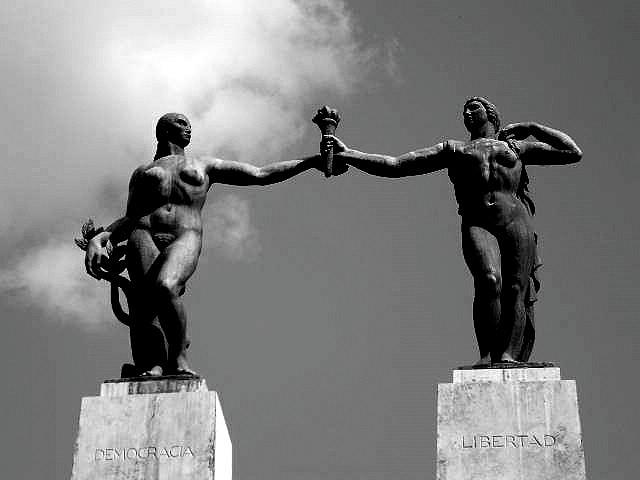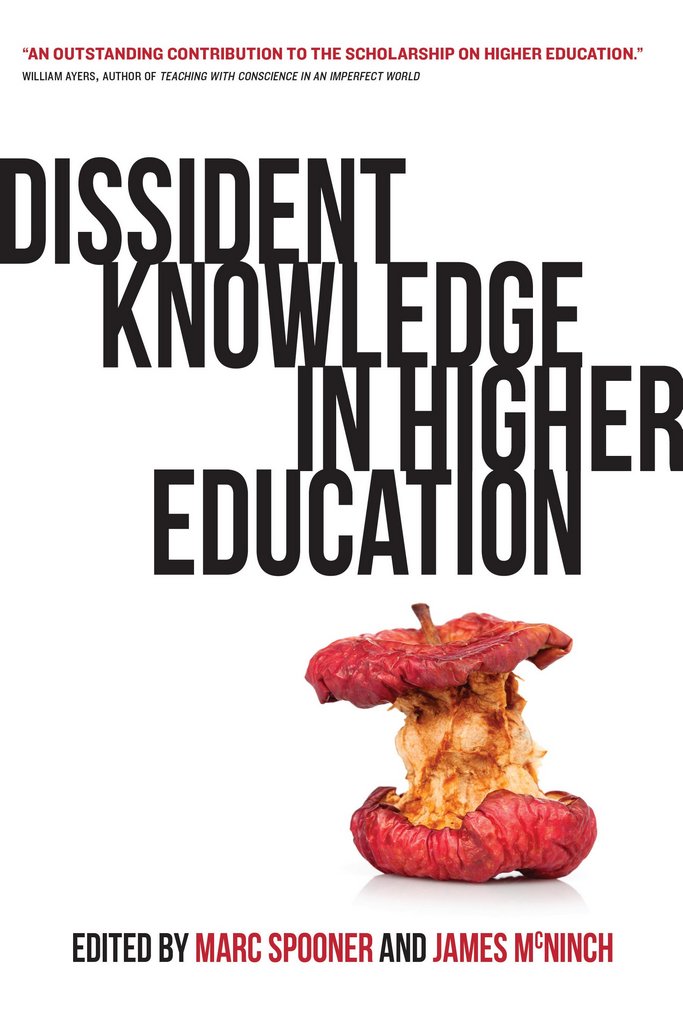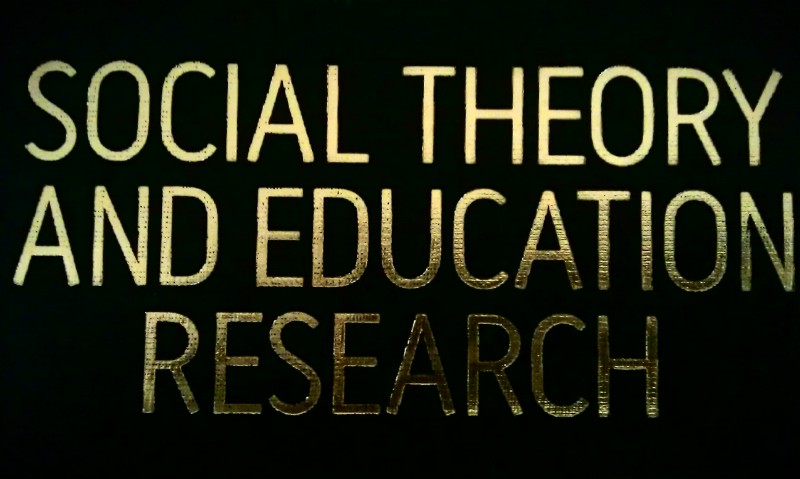 In this interview, Mark Carrigan (@mark_carrigan) talks to Dr. Jana Bacevic, University of Cambridge. Dr. Bacevic works on social theory and the politics of knowledge production, and is a Research Associate in Critical Studies of Higher Education at the Faculty of Education’s Culture, Politics and Global Justice research cluster. Prior to starting a PhD at the Department of Sociology, Jana was a Marie Curie Fellow at the University of Aarhus, Denmark (working on EU FP7-funded project ‘UNIKE – Universities in the knowledge economy’), and lecturer at the Central European University in Budapest. She has held visiting fellowships at the Graduate School of Education, University of Bristol; Department of Anthropology, University of Auckland; Open Society Archives, Budapest. She has a PhD in social anthropology (University of Belgrade, 2008) and was OSI/FCO Chevening Fellow at the University of Oxford in 2007-8. More information on Dr. Bacevic can be found here.
In this interview, Mark Carrigan (@mark_carrigan) talks to Dr. Jana Bacevic, University of Cambridge. Dr. Bacevic works on social theory and the politics of knowledge production, and is a Research Associate in Critical Studies of Higher Education at the Faculty of Education’s Culture, Politics and Global Justice research cluster. Prior to starting a PhD at the Department of Sociology, Jana was a Marie Curie Fellow at the University of Aarhus, Denmark (working on EU FP7-funded project ‘UNIKE – Universities in the knowledge economy’), and lecturer at the Central European University in Budapest. She has held visiting fellowships at the Graduate School of Education, University of Bristol; Department of Anthropology, University of Auckland; Open Society Archives, Budapest. She has a PhD in social anthropology (University of Belgrade, 2008) and was OSI/FCO Chevening Fellow at the University of Oxford in 2007-8. More information on Dr. Bacevic can be found here.
What is theory?
The million dollar question, isn’t it? I think theory can mean quite a few things – Abend (2008) has listed a few – but rather than reiterate that, I’d focus on two interpretations of the concept that are crucial to my work. One is that it is a language, or a vocabulary, for making sense of social reality; as all languages, it allows for improvisation, but also has rules and procedures that regulate how and under what conditions specific statements make sense. It is also a practice: that is, the practice of growing, developing, and engaging with concepts in that language. This is why Arendt’s theorein is not opposed to practice as a whole, but rather comprises action, though one that entails a different idea of engagement.
Why is it important?
This is also why I believe theory is important – I think that a meta-language, and a language about that language, is necessary in order to ensure we can have a meaningful conversation about social matters – and when I say “we”, I do not mean only scientists. Social life by definition involves some level of reduction of complexity: how we go about reducing that complexity has direct implications for how we go about dealing with other people and our environment. This is also why I think it is fruitless to separate social and political theory. Take the concept of class, for instance: it can – it does – mean different things to different people. We need to have both a language in which to make these concepts meaningfully talk to each other, and a routinized social practice for doing so.
What role does it play in your work?
One of the corollaries of my training in both sociology and anthropology is that I find it difficult to sustain discussions about theory that do not engage with how actual people go about using these concepts – the exegetic tone of “did Marx really mean to say this…” or “why Bourdieu’s concept of social capital is that….” is, in my view, both too canonical and insufficiently exciting. Theory need not be scholastic. One of the elements I got interested in when I was doing my first PhD, for instance, was the concept of ‘romantic relationship’- there were different attempts to theorise it (inversion of historical abstraction of property/inheritance rights, subjugation of women, emancipation from gender roles, cultural expression of ‘hard-wired’ preferences, and so on), but fewer attempts to see how these interpretations ‘sit’ with people’s ideas and practices. Reality does not ‘naturally’ fit into a specific theoretical framework. Rather than trying to make it do so, I decided to put these different theoretical lenses into conversation, to see a particular empirical case could illuminate their commonalities, differences, and possible overlaps.
My current work – which is on the role of critique in and of higher education – pretty much repeats this movement, but takes it one step further. It asks what difference people’s knowledge makes in how they go about approaching things (including their own situation). Some of this knowledge is theoretical, both in the sense in which it is imbued by concepts derived from theory (as in Giddens’ double hermeneutic), and in the sense in which the question of the link between knowledge and action is in itself theoretically informed. There’s a whole bunch of nested epistemic double binds in there, and that’s what I find so attractive! In philosophical terms, I am aiming to bridge the gap between [critical] realist and pragmatist accounts of the production of knowledge and its role in social reality. I’ve found speculative realism to be a potentially useful tool in doing so, but it is a signpost rather than a church. I always strive to work simultaneously *on* and *with* theory; someone recently described this as “theoretically hybrid”, which I think was a nice way of putting that I was inclined to bastardize every and one concept I ever came across. But I think this is what the job of the theorist is about. I understand some people prefer to work within the confines of a single theoretical tradition, sometimes dogmatically so; but this has never been my choice. I have very little reverence for principled fidelity to specific theoretical frameworks. Theories are worldviews; this means they need to be challenged.
What would this routinised social practice look like? Is this something social theorists are uniquely qualified to do? How do we ensure this challenge happens? There are lots of obvious mechanisms within the academy which militate against this
Well, I think routinised social practice is what happens in teaching of sociology and other social science disciplines; it also happens at conferences, reading groups, etc. – such as the Theory stream at the British Sociological Association’s annual conference. The problem is these practices are often sequestered from other bits of theorising. For instance, feminist theory is rarely treated as part of ‘mainstream’ social theory; same goes for postcolonial theory and theories of race, though it seems this is finally beginning to change. This reproduces, as your question suggests, one of the worst tendencies in the academia (and beyond): theories about and by educated Western white men are treated as ‘theory’, while almost all theory that falls short of even if just one of these categories is automatically a ‘special case’ – as if feminist theory applied only to women, and theories of race only to people of colour. As someone whose induction into theory happened initially through the combination of social anthropology (where questions of identity and difference are pretty much front and centre) and philosophy of science (which acknowledged quite a while ago that all claims to knowledge – including theoretical knowledge – are socially grounded), I find this almost incomprehensible – or, rather, I find that explanations for this go back to the elements in the academia we do not particularly like: racism, sexism, Euro- or (not always mutually exclusively) Anglo-centrism, etc.
Social theorists, on the whole, have not been very good at talking about this. This means that this challenge tends to happen in isolated contexts – and a lot of mainstream social theory carries on with ‘business as usual’. Making it more central requires, I think, a lot of concerted effort. Some of this is personal – for instance, I make a point of always calling out these practices when I spot them, and very adamantly resist ‘pigeonholing’ in which, for instance, women’s theoretical claims are routinely repackaged or treated as empirical. For example: a man writing on privatisation of enterprises is seen as contributing to Marxist theory, but a woman writing on the gendered division of labour is either writing ‘about women’ (sic!) or about household labour. When I was within about relationships, people often said ‘oh’, as it was a ‘light’ topic, or as if it pertained only to practices of social mobility in a post-socialist context, where my fieldwork was. Giddens’ ‘pure relationship’, on the other hand – which, incidentally, is a concept I did my best to write against – was not taken as only representative of the lived experience of transnational bourgeois mobile academics. This will sound a bit Gramscian, but a lot of theoretical claims made by ‘academic celebrities’ that are routinely taken seriously are often little but the extrapolation of their privilege. Yet, clearly, that is not the problem in and of itself – everyone writes themselves into theories they develop. It’s treating some of these as reflections of universal, God-given truth, and some as ‘about women’ or ‘about race’. It’s the culture of condescension towards women and minorities that really needs to change.
Obviously, calling it out is not enough: I think we need a strong organisational and institutional support for this. One of academia’s performative contradictions – that I am particularly dedicated to exploring – is that often collective practices work precisely against this. So, we can have a workshop or panel on sexism, racism, or colonialism in social theory, but actually challenging these practices – including in their ‘everyday’ guises – takes a lot of courage, but also a lot of solidarity. It cannot happen outside of challenging the whole culture of fear that currently pervades the academia but which, I hope, the UCU strikes have started chipping away at.
The other thing we can do is provide spaces where these conversations can take place. For instance, the Social Theory summer school you and I have run at the University of Cambridge in September 2016 was developed exactly to surmount this tendency towards ‘cloistered’ (well, of all words!) theorising. To step outside of the retreat of academic positions, seminars, self-rewarding research grants panels, etc., and ask: what is it that doing theory actually entails? Is it anything other than an attempt to justify our own (academic and non-academic) privilege by casually namedropping Foucault or Durkheim? I think this is the question we really need to answer.










